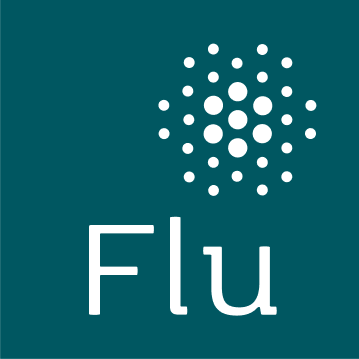Influenza can cause mild to severe illness. A mild case of the flu may cause you to feel ill and miss work, but more serious complications can happen, too. Of the millions of people who get the flu each year, hundreds of thousands are hospitalized due to flu-related causes, and tens of thousands die from them.
According to the Centers for Disease Control (CDC), annual influenza vaccines are the best protection against the flu. Flu vaccines can reduce the risk of getting sick from the flu and having to be hospitalized for it. You might still get influenza after you’ve been vaccinated, but vaccines can reduce the severity of sickness you might feel if you do catch the flu.
The CDC recommends that adults aged 65 and older receive an adjuvanted or a higher dose flu vaccine. If these two vaccine types are not available, adults of this age group can receive a standard-dose flu vaccine. For other people outside this age group, the CDC does not recommend any particular flu vaccine over another, with rare exception.
If you are trying to decide which vaccine might be best for you, make sure you talk to your doctor or another healthcare professional.
The CDC recommends that everyone who is at least 6 months old should be vaccinated for influenza, with few exceptions.
The CDC warns against the use of flu shots in some people, and against the use of nasal spray flu vaccines in others. These CDC recommendations against the use of these vaccines are based on age, history of allergic reactions to vaccines or vaccine ingredients, and certain health conditions, either now or in the past.
It’s important to note that different vaccines are approved for use in people in certain age groups. If you have concerns about which vaccines are best for you, please talk to your doctor or another health care provider.
In the United States, the CDC recommends getting vaccinated by the end of October, as the traditional flu season begins to ramp up. If you can’t get vaccinated before November, it’s still important to get a flu vaccine because the flu season can continue through May.
According to the CDC, flu vaccination timing is especially important for children and pregnant people in their third trimester.
The CDC recommends that children who are aged 6 months through 8 years have 2 doses of flu vaccine. According to the CDC, the first dose should be given to them as soon as possible after flu vaccines become available; they can have the second dose starting at 4 weeks later. Children who only need one dose of the flu vaccine can have it as soon after flu vaccines become available.
The CDC advises that pregnant people in their third trimester also get vaccinated soon after flu vaccines become available. Non-pregnant adults should avoid vaccination in July and August, unless there is concern that getting a vaccination at a later time might not be possible.
Flu vaccines may cause side effects, just as other medical product might. Typically, these side effects are mild, lasting no more than a few days. Some common side effects include:
• Fever
• Headache
• Muscle aches
• Nausea
• Soreness, redness, or swelling (associated with flu shots)
Guillain-Barré Syndrome is a rare medical disorder that involves nerve damage in which the immune system attacks the peripheral nerves (such as in the arms and legs). On very rare occasions, some people may develop Guillain-Barré Syndrome in the days or weeks after getting a vaccination. Guillain-Barré Syndrome may also rarely occur after having the flu or other infections.
This can change from season to season, depending on whether the viruses in flu vaccines during a given flu season are similar to the flu viruses that are in circulation at that time. If there is a good match between the flu vaccines and the circulating viruses, the flu vaccines may offer substantial protection against flu and flu complications. In this particular “good match” scenario, results from recent studies have shown that flu vaccines can reduce the risk of influenza illness between 40 percent to 60 percent in the general population. Aside from this, the ability of a flu vaccine to provide protection against influenza will also depend on a person’s health status, age, and other factors.
Having a flu shot may not prevent you from getting sick from the flu; however, studies have shown that flu vaccines may reduce how sick people get.
Flu shots can be made with a flu virus that’s been inactivated or with a single protein from the flu virus. Nasal spray vaccines are made with attenuated or weakened live flu viruses, so they cannot cause infection.
